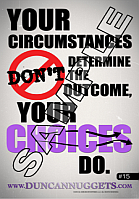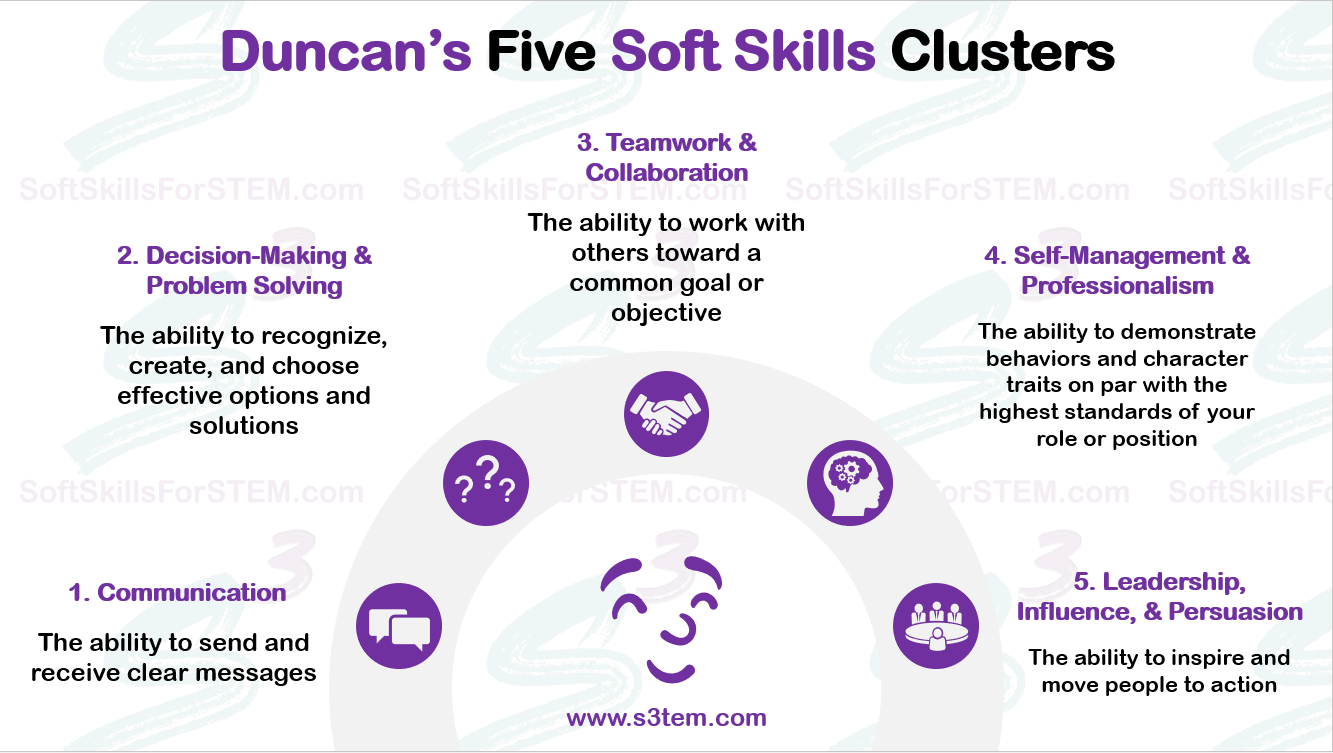The Hunt for Respect
Be it consciously or unconsciously, most people are on the hunt for respect. Respect is at the core of power and influence. That’s easy to see. Respect is also at the core of communication and motivation. That’s harder to see.
If you are communicating with somebody, especially a teenager, and he doesn’t believe that you respect him, he doesn’t hear you. If you’re trying get somebody motivated and she doesn’t believe you respect her, she won’t be motivated. (Well, maybe she’s motivated to get away from you!)
GIVE IT AND YOU’LL GET IT?
I’m sure you know that respecting somebody doesn’t guarantee that he’ll respect you in return. He may not even believe that you respect him. This is frustrating and baffling to parents, educators, and leaders from all walks of life. Nevertheless, respect is a crucial component of effective communication.
Duncan Nugget® #86:
People on BOTH sides of the equation
have to feel respected or
things can get ugly in a hurry.
When I’m talking to older folks I remind them that a lot of the perplexing, defiant behavior young people exhibit boils down to the hunt for respect and acceptance.
When I’m talking to young folks I remind them that a lot of the overbearing, dictatorial behavior older people exhibit boils down to the hunt for respect.
If a person that’s on the hunt for respect gets it from you—and respects you in return—it’s easier to open the channels of communication. You will have a much better chance of influencing that person.
HOW TO DEFINE RESPECT
If you want to master this whole concept of respect it starts with patiently and diligently exploring how the other person defines respect. It means something different to everybody.
Million-Dollar Question:
How do you know when somebody respects you?
Not only is that a question you want to ask yourself, but it’s also a great question to ask other people. The answer will provide valuable insight into the thought process behind the other person’s the behavior. It tells you how to help people (that includes you) get what they are hunting for.
RANDOM ACTS OF CRAZINESS
Duncan Nugget® #88:
People are known to perform random acts of craziness
just to get a little bit of R-E-S-P-E-C-T.
Think about some of the crazy things people do while on the hunt for respect:
— Lying about how much money they make.
— Snapping on mom.
— Buying a house they can’t afford.
— Screaming at someone in traffic who cannot hear you.
The hunt for respect is laced with craziness. Even when it comes to various aspects of youth violence, research shows that “some teenagers who are popular among their peers use relational violence in order to maintain and improve their reputation in their peer group.” They’re on the hunt for respect.
That’s why people should clearly define what respect means to them. Once the definition is clear then you can retire the craziness and find other ways to earn respect.
THE BOTTOM LINE
People constantly hunt for respect because it’s a psychological human need. It increases a person’s self-confidence and self-esteem. It helps people feel like they”belong”; it helps them feel significant.
When they come looking for respect, if you give it to them, you’ll have a better chance of being able to influence them. (Hopefully, you’ll use that influence in a positive way.)
Duncan Nugget® #89:
Regardless of age, race, gender, or beliefs,
if you want to maximize motivation and
facilitate effective communication,
it requires respect.







